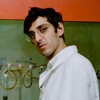
Shulgin authored articles in the most high-impact journals in scientific publishing and generally did so from his home laboratory, something that is almost unheard of. He pushed the boundary of what is legally and scientifically acceptable, not to thumb his nose at the establishment but because he believed in scientific freedom and cognitive liberty. Most important, he was unwilling to make compromises that he knew would impact the scope of his work—he was interested in the mind of humans (not rodents) and directed his research accordingly. Shulgin generously shared his data and hypotheses to benefit future investigators—directions for new areas to explore appear throughout Pihkal and Tihkal. The only thing more important to Shulgin than his research was ensuring that it would be carried on. (For example, Shulgin hinted that the sea-sponge-derived tryptamine 5-Br-DMT would be psychoactive in humans and was delighted when it was demonstrated and published last year).He was an unnecessarily kind teacher to the young, stupid, and strange.
When I first emailed Alexander Shulgin as a college freshman, it was done impulsively in a moment of awe. I had not yet had the time or chemistry education to read the entirety of Pihkal and Tihkal or his 100-plus scientific publications, and I shudder when I think about the exact questions I asked him. Suffice to say they warranted no response or, at best, a dismissive citation of the requested information. Instead he responded with genuine kindness and interest. And I was not unique in that regard: I know dozens of other people who were openly received by Sasha when he had nothing to gain. He treated questions from postdocs, high school students, and convicted felons with the same consideration and respect.
Shulgin is generally called a psychonaut before a science writer, but I struggle to find anyone who could write more convincingly about the wonder of organic synthesis and scientific exploration, Primo Levi included. Case in point:
His research extended far beyond MDMA.The extension of the two-carbon chain of mescaline by alpha-methylation to the three carbon chain of TMA approximately doubled the potency of the compound. And it was felt to be a completely logical possibility that, by extending it one more carbon atom, to the four carbon chain of alpha-ethyl-mescaline, it might double again. And following that logical progression, the doubling of potency with each additional carbon atom, the factor would be 2 to the 7th power by the alpha-octyl (or 256x that of mescaline, or a milligram as active dose) and with a side chain of a 70-carbon alkyl group (alpha-heptacontylmescaline) it would take just a single molecule to be intoxicating. This was rich fantasy stuff. As an active compound, just where would it go in the brain? With an 80-carbon side-chain, would one-thousandth of a single molecule be enough for a person? Or might a single molecule intoxicate a thousand people? And how long a chain on the alpha-position might be sufficient that, by merely writing down the structure on a piece of paper, you would get high? Maybe just conceiving the structure in your mind would do it. That is, after all, the way of homeopathy.
The role Shulgin played in the rediscovery and popularization of MDMA is what the media generally emphasizes, but there is just as much to be learned from the dozens of compounds he synthesized that never achieved widespread use in humans. His creation 2C-SE was the first and only psychoactive drug to feature the element selenium. He pioneered heavy psychoactive drugs with beta-D, his successful attempt to alter the activity of mescaline via the substitution of deuterium for hydrogen atoms in the molecule's beta position. Beyond these carefully planned investigations, his curiosity led him to the serendipitous discovery of many new types of drugs he could have never anticipated: extreme time dilation from 2C-T-4, tactile hallucination from 2,N,N-TMT, an unexpected fugue state from 4-desoxymescaline, and the still unclassifiable effects of 5-MeO-pyr-T.He did unique things with a non-unique skill set.
There is absolutely no question Shulgin was a unique visionary and extraordinary chemist, but it would be a mistake to think that his career was the product of an understanding of chemistry that was entirely unique––and that was his greatest power. There are tens of thousands of chemists who could have technically accomplished Shulgin's synthetic feats but didn't. With minimal financial resources in a tiny backyard lab, Shulgin made some of the 20th century's most important contributions to the fields of psychopharmacology and medicinal chemistry, and it wasn't because he possessed knowledge that nobody else had but because he was passionate and willing to risk his freedom and financial stability to explore something he knew had vital scientific importance.I used to say, "There will never be another Alexander Shulgin," and that is true, but the last thing Shulgin wanted was to be the only scientist of his kind. So let me revise that: There will never be another Alexander Shulgin, but he created so much and inspired so many that there doesn't need to be.
